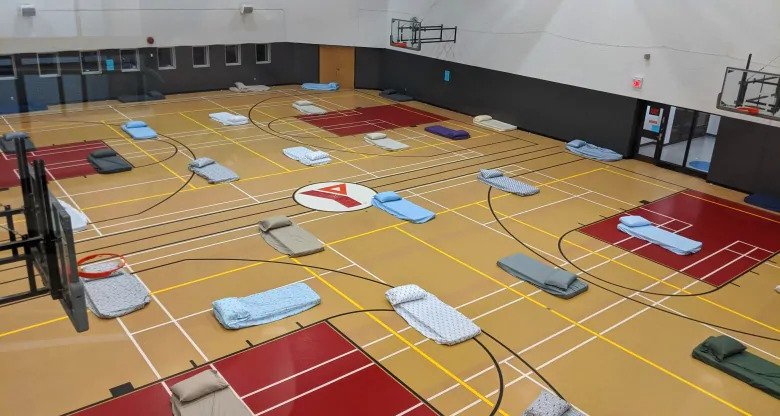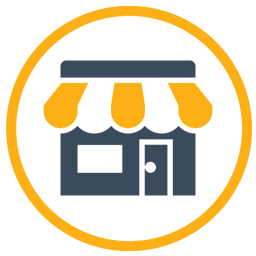
People across Waterloo region are stepping up to help their neighbours, front-line workers and more.
This week on CBC Kitchener-Waterloo’s The Morning Edition, we featured a number of stories about them, including hospital equipment drives, creating temporary walls for hospitals and handing out nutritious food to families in need.
Here’s a selection of stories about helpers in our community from the show this week.
YMCA shelter
The A.R. Kaufman YMCA building in Kitchener has been retrofitted to become a temporary shelter for people who are homeless during the COVID-19 pandemic.
“We committed to ourselves and this community that we would not close. We didn’t know what that meant,” Peter Sweeney, CEO of the YMCA.
“We just reached out, and we just said, ‘How can we help?'”
Sweeney said people accessing the building will be screened for COVID-19. People also have access to showers, beds, meals provided by the Food Bank of Waterloo Region and computers.

Online caregiver support group
The Facebook group Caregiver Connections Waterloo-Wellington has shifted its focus to ways caregivers can support one another during the COVID-19 pandemic.
Emma Whitehouse from St. Joseph’s Health Centre in Guelph said it’s important caregivers take time to care for their mental health and wellbeing right now.
“Supporting the caregiver themselves is vitally important,” she said.
She hopes the group can be a platform for caregivers to share their stories and experiences.The Morning Edition – K-WOnline group aims to support caregivers amid COVID-196:50The Facebook group Caregiver Connections Waterloo-Wellington was created originally as a platform for caregivers to support one another by sharing resources and information and tips on how to navigate the healthcare system. That was in late 2019, but now the group has shifted its focus to ways caregivers can support one another during the pandemic. 6:50
Food for kids
Volunteers with Nutrition for Learning in Waterloo region are continuing to provide food to kids while they’re out of school.
Nutrition for Learning’s Tania Moser says donations from the community as well as general funding for their program have enabled them to keep handing out food.
“Even if it’s just one loaf of bread, it can bring a family together,” she said.The Morning Edition – K-WLocal nutrition program finds a way to feed kids during COVID-195:45Nutrition for Learning normally brings food inside 140 schools, but now it’s making outdoor drop-offs for families in need during COVID-19. 5:45
Building (literal) walls
On Tuesday, Kitchener-based company Trusscore got a shout out from Prime Minister Justin Trudeau for their work.
Company owner Dave Caputo said they normally make building equipment using recycled materials and quickly stepped in to make temporary walls for local hospitals.
They are now shipping more “temp walls” to other provinces such as Manitoba and Quebec.The Morning Edition – K-WKitchener-based company Trusscore gets a shout out from Prime Minister Justin Trudeau4:41A Kitchener-based company Trusscore got a major shout out on March 30 from Prime Minister Justin Trudeau. They create building equipment using recycled materials, but Trudeau praised the work they’re doing to provide temporary walls to local hospitals. 4:41
Universities donate
Post-secondary institutions in Waterloo region and Guelph donated much-needed medical equipment to hospitals.
Conestoga College donated N95 masks, gloves and other personal protective equipment to local hospitals.
They’re also lending ventilators, hospital and long-term care beds, stretchers, mattresses and other equipment normally used by students in the classroom.
The college also made a number of neonatal and paediatric ventilators, high flow oxygen units, video intubation and video bronchoscopy equipment, as well as anaesthetic gas machines available for the province to distribute to hospitals in need.
Wilfrild Laurier University and the University of Guelph also donated personal protection equipment such as N95 masks, disposable gloves and gowns.
Laurier donated surgical masks, visors, goggles, hand sanitizer and test kits.
Finally, two facilities at the University of Waterloo shifted to 3D-printing parts for face shields.

